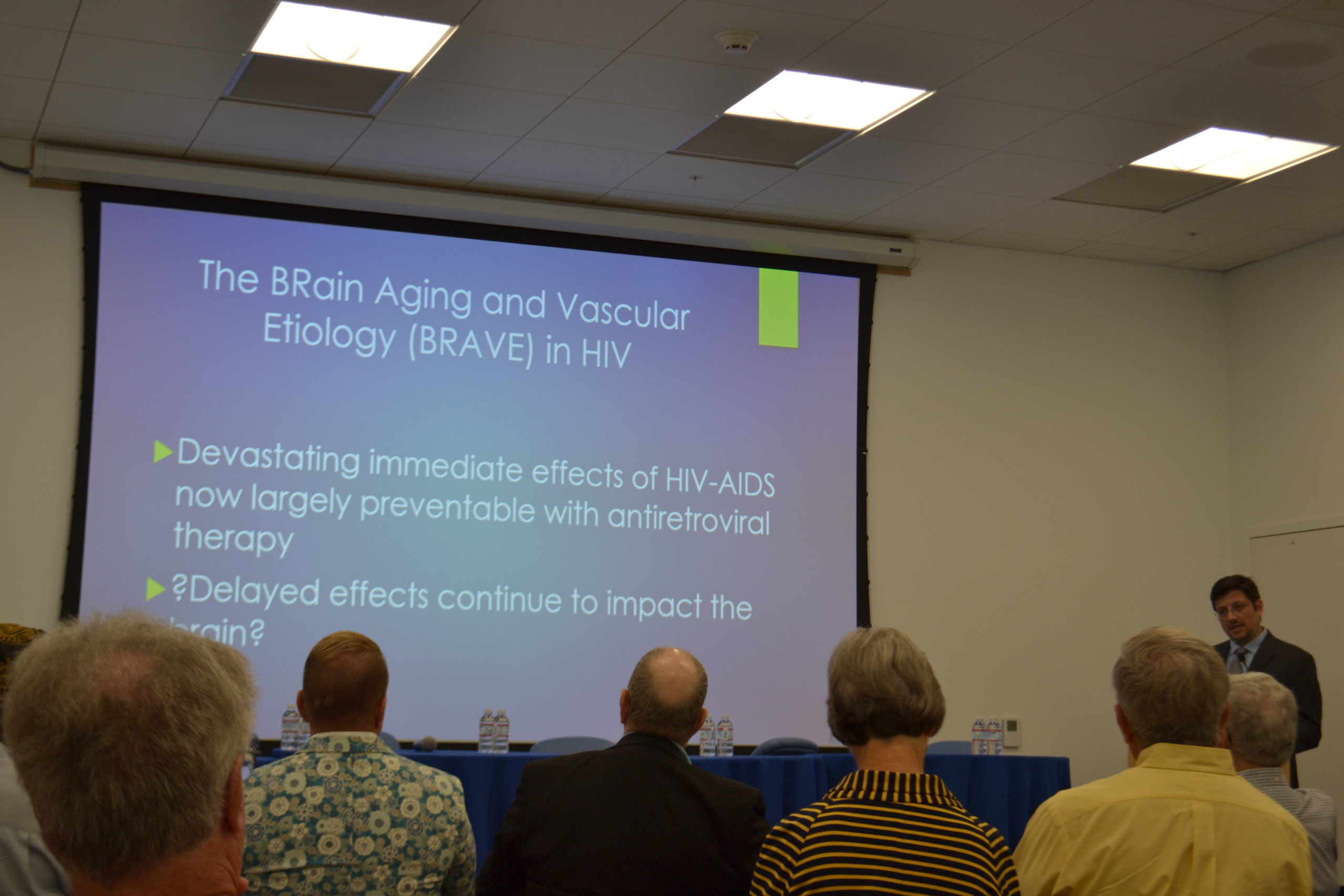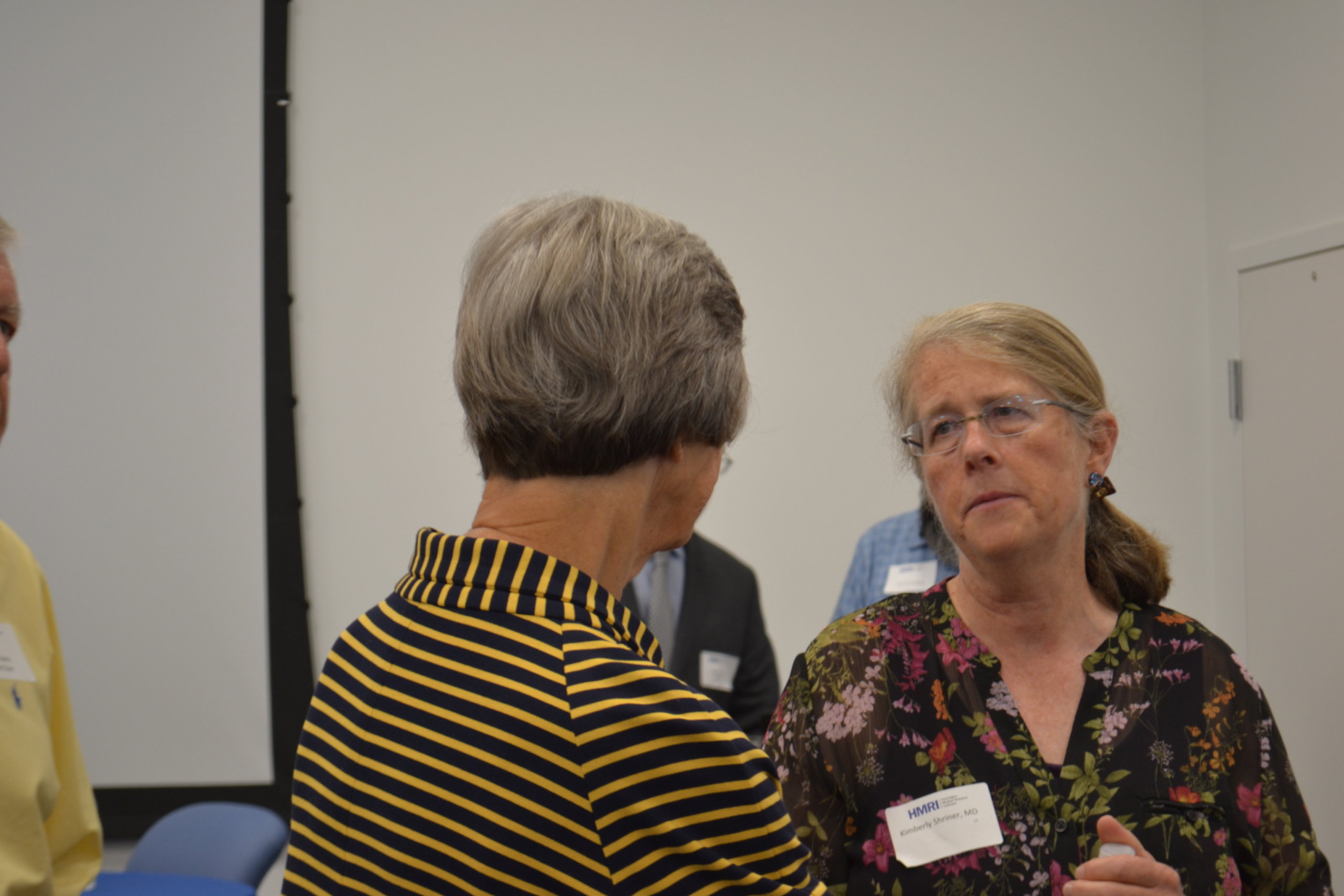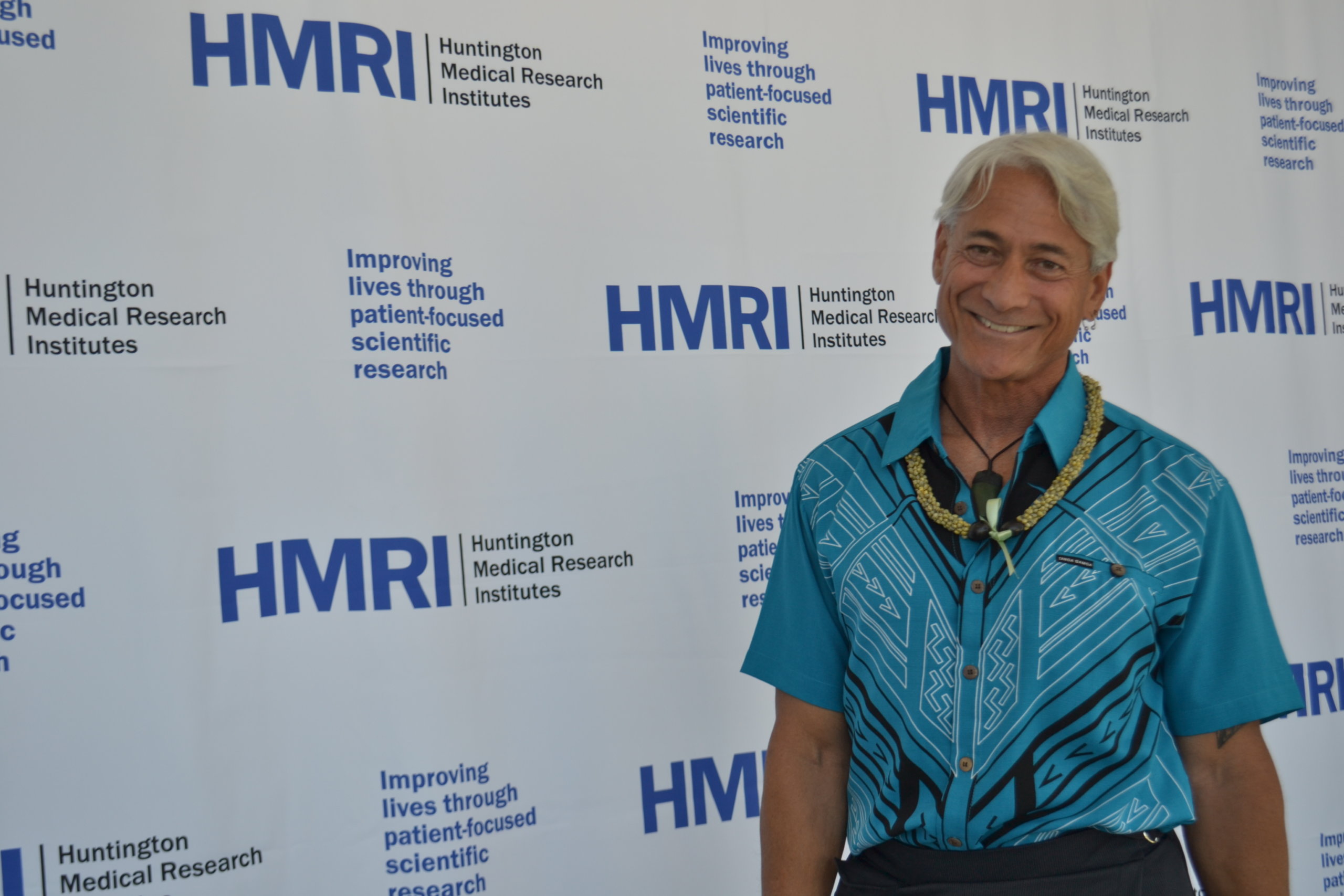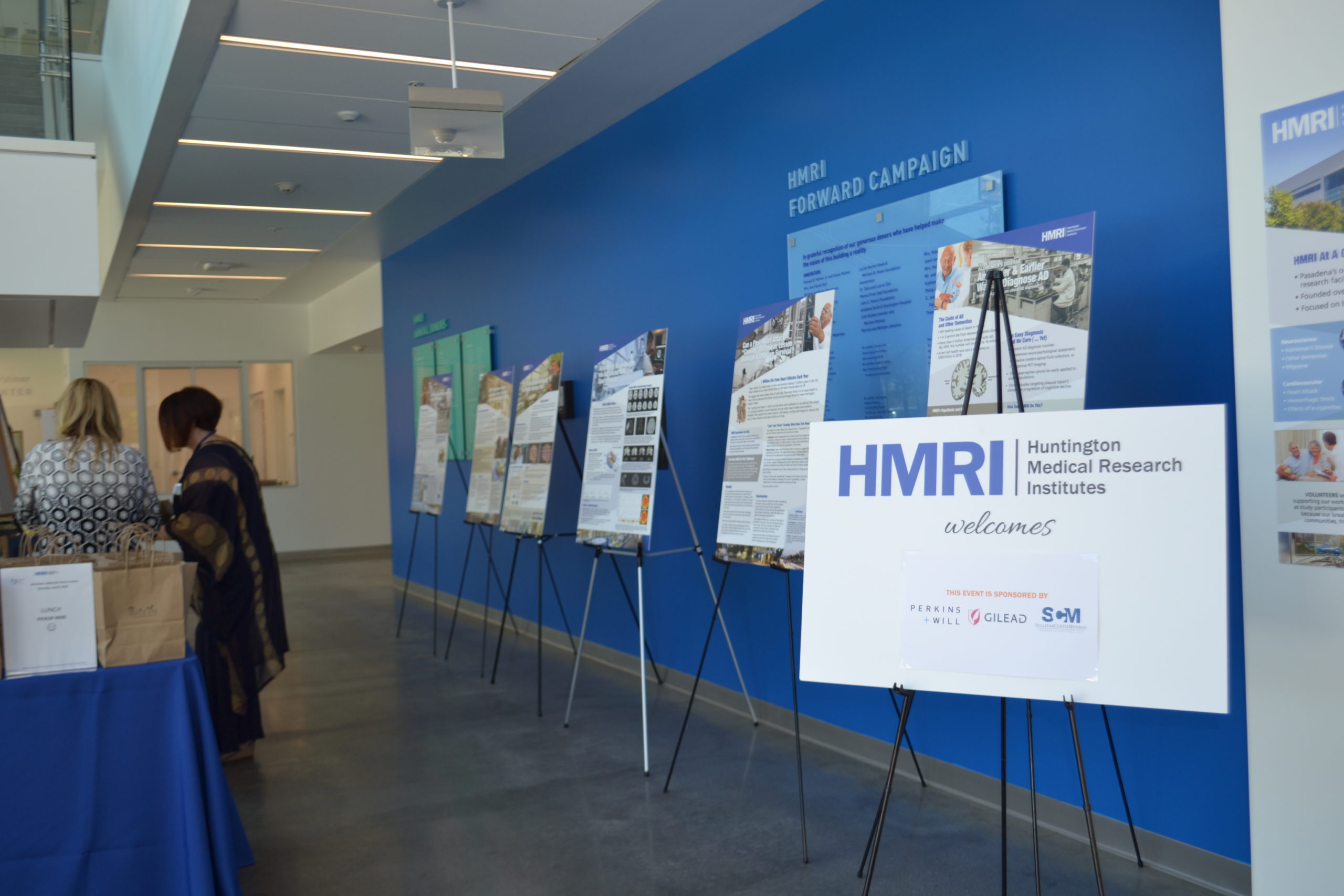
By Alex Cordero
Huntington Medical Research Institutes (HMRI) hosted their first community forum about living well with HIV at their new location in Pasadena on Saturday June 8. The presentation consisted of a physician’s view on managing HIV and revealing some of the research findings from the BRAVE (Brain Aging and Vascular Etiology in HIV) study. The event also included a panel of local residents who shared their stories of living with HIV and four-time Olympic gold medalist diver Greg Louganis who also shared his journey living with HIV. The event was educational and all the segments of this community forum were compelling.
For example, Pasadena-native Dr. Kimberly Shriner, an infectious disease and tropical medicine specialist, delivered an interesting and engaging presentation on managing HIV. She shared that people infected with the virus are able to live longer and have fairly healthy lives due to the types of treatments available. And, although there has been an overall decline of HIV cases from a global standpoint, some people are still at high risk of acquiring the disease here in the United States and may not have access to lifesaving therapy. According to Dr. Shrine, over the last several years there has been an increase of HIV incidences in the U.S. among people 13 and older and also between the ages of 25 to 34. “This sort of young, youngish to middle age, cohort is a target area that we need to get better education, better access to testing, and of course on antiretroviral therapy”.
She went on to also communicate that although cases of HIV disease have plateaued among all ethnic groups, “The Black, African American population still has a disproportionate amount of HIV [cases] and the Hispanic-Latino population unfortunately is continuing to increase.” As a Mexican American this information was alarming and scary. Dr. Shriner continued, “This is particularly true among young Latino males in terms of getting testing and access to antiretroviral therapy and so we have a lot of work to do in terms of trying to control the epidemic.”

After a quick intermission Dr. Kevin King, a board-certified radiologist, presented some of the research findings of the BRAVE study. Dr. King uses magnetic resonance imaging (MRI) to learn how HIV and other chronic diseases impact brain health and eventually lead to high risks of developing brain diseases such as Alzheimer’s and dementia. But, with studies such as BRAVE perhaps physicians can identify and treat an aging brain early to lessen the risk of developing brain diseases. According to Dr. King brain diseases primarily develop due to brain aging and the brain of a patient who has been living with HIV seems to age more rapidly — potentially doubling the risk of brain diseases in HIV patients.
“We did a study where we did a copy of screening tests and you can pick up cell deficits in people that have HIV. And, there are some things where if you look at [a brain MRI it] is not entirely bright. There are subtle things that you can pick up and may not be chronically significant now but affects the question: is there something that may happen later on?”
Dr. King is practicing and performing his research as imaging director at HMRI. He is currently working on learning how diseases like diabetes, liver cirrhosis and HIV affect the brain.

There were a total of five local individuals who shared their stories about living with HIV. They spoke candidly about their experience with the disease and were an inspiring panel. “I’m not ashamed of living with HIV,” said one of the panelists as he explained that the reason why a lot of people do not share their diagnosis is because of the stigma surrounding HIV/AIDS. Some of the panelist shared how back in the early ‘80s and early ‘90s being diagnosed with HIV was considered a death sentence. These five courageous individuals are living their HIV journey out loud to help the local community learn how to prevent the disease.

Following the panel there was lunch with Greg Louganis, a four-time gold medal Olympic diver who decided to make his HIV-positive diagnosis public in a book titled “Breaking the Surface” in the mid-‘90s. (Do you remember when Louganis hit his head on the diving board during the 1988 Olympic Games in Seoul? He got on top of that diving board after the hit caused some head bleeding and finished in gold-medal style.) He was endearing about sharing his journey and he ended his speech by saying: “Love. That is the core of all of us, is love. Because all we want to do is love and be loved, and everybody is deserving of love.”







